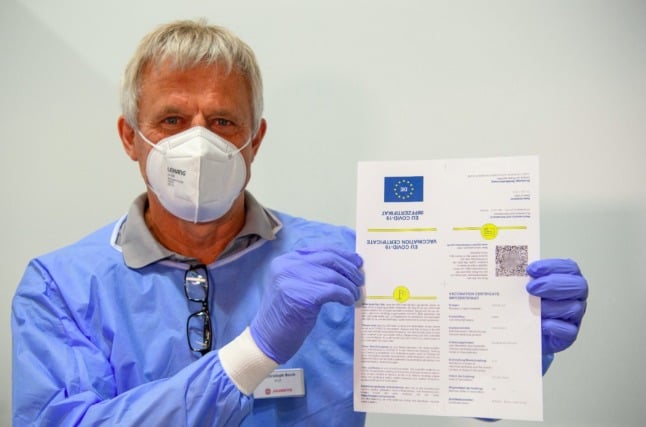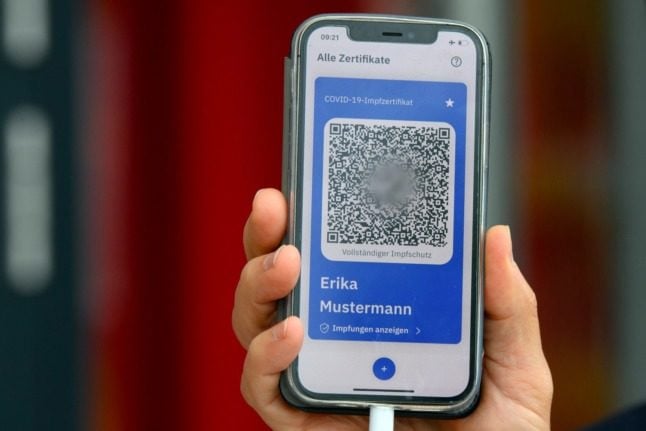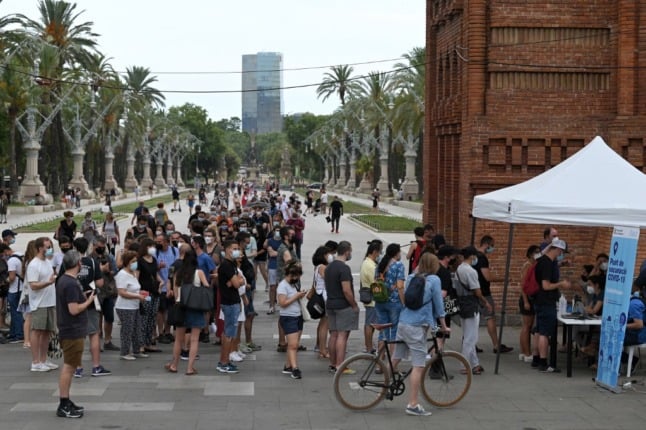Selected vaccination centres are giving out the digital certificate, known as the ‘CovPass’ – along with the paper version – to monitor how it works ahead of the nationwide rollout.
“We want to see how the processes work,” said Gottfried Ludewig, department head in the Health Ministry, during a visit to the Potsdam vaccination centre on Thursday. “Does it work technically? Does it also work in the system?”
The centre is part of the nationwide field trial to test the digital vaccination pass, reported the Tagesschau on Thursday.
READ ALSO:
- What is Germany’s new digital vaccination pass and when can I get it?
- What’s the latest on how the EU ‘Covid passports’ will work for travellers?

At the beginning of the year, the European Commission agreed that countries would launch a digital health record – now called the EU Digital Covid Certificate.
The EU hopes the certificates, which they say are not strictly “vaccine passports”, will make travel easier and safer, and boost the economies of tourism-dependent nations.
Member states, including Germany, are implementing their own systems for how residents can upload their vaccine certificate or Covid-19 health status onto a digital platform.
Results of Covid-19 tests or proof of recovery from coronavirus can also be stored on the CovPass app.
Health Minister Jens Spahn has said the digital pass will be offered in Germany by the end of June.
Ludewig assured that the introduction of the digital certificate was on schedule.
How does it work?
People who have been vaccinated should receive a piece of paper with a code which they scan onto their smartphone and onto an app. They will receive the certificate from the vaccinating doctor or centre.
Those who have already had their jab should also receive the certificate from their GP or vaccination centre, authorities say.
Alternatively, they can get digital evidence from pharmacies or doctors’ surgeries by presenting their analog vaccination certificate.
But after the introduction of the CovPass, the paper vaccination certificate – such as the well-known ‘yellow vaccine booklet’ – remains valid.
People who are travelling in the EU (this may also be extended to some non-EU countries) but do not want to provide proof of their vaccine status via an app can, alternatively, carry the printed code with them.
READ ALSO: Jabs for children and digital passports: What can we expect from Germany’s vaccine summit?
‘No bureaucratic monster’
Ludewig countered fears that the procedure could see people use forged vaccination cards to turn them into valid digital certificates.
He said yellow vaccination booklets can be checked for forgery by pharmacies and GPs.
Board member of the Brandenburg Association of Statutory Health Insurance Physicians, Holger Rostek, said he was delighted with the start of the field tests.
“The vaccination certificate must be practical and also work in general practitioners’ practices,” said Rostek. “We want to vaccinate and not have a bureaucratic monster.”



 Please whitelist us to continue reading.
Please whitelist us to continue reading.
Member comments